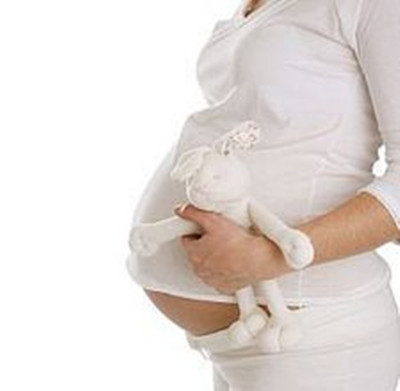Don, you sure are lucky don't have to give birth.
唐,你很幸运不用生孩子。
I'm glad we're an intelligent species, but boy, that infant head feelsmighty large going through that narrow birth canal.
我很高兴人类有着聪明才智,但是天啊,婴儿的脑袋要从狭窄的产道出来,那是很痛苦的。
And then,after all that, the baby comes out facing down and backwards,which means you're helpless to assist it, or even to untangle itfrom the umbilical cord.
而且,经历过这一切后,宝宝出来是面向下和倒过来的,你根本没办法协助它,或者甚至不能帮忙解开脐带。
Well, Yeal. According to evolutionary anthropologists, babies of the earliest humans had afifty-fifty chance of coming out facing backwards.
是的,雅埃尔。根据人类进化学家,人类早期时候的婴儿生出来是有二分之一的可能性是面向后面的。
This was a result of humans learning to walk on two feet.
这是人类学习用两只脚走路的结果。

As the pelvis became optimized for walking, the birth canal developed twists and turns that meant the baby had to rotate in order to keep its head and shoulders aligned with the widestpart at all times.
随着盆骨越来越适应走路,产道就变得迂回曲折,婴儿就得旋转过来保持它的头和肩膀总是与最宽的部分在同一平面上。
And then our brains also got bigger.
然后头也会变得更大。
Which meant more twists and turns.
也意味着更多的扭转。
And backwards-facing babies, stupid,huh?
倒着出生的婴儿,很可笑吧。
Well,you know,Yeal.Some of the earliest humans learned to compensate for the difficulty of giving birth by receiving assistance during childbirth, which made a huge difference in terms of survival.
你知道吗?最早时期的人类学会弥补分娩的困难,他们通过在分娩是接受援助,这在生存方面起了非常重要的作用。
So there might be an evolutionary advantage to having someone help you give birth.
因此,也许有一种进化优势能请人帮助你生育。
Some anthropologists certainly think so and conjecture that human females who gave birthto backwards-facing babies, and females who had assistance because they felt particularly anxiousabout the birth, ended up doing better than females who didn't.
一些人类学家当然也这么想过,并且他们推测那些女性生下面向后面的婴儿,和在生育时得到帮助的女性比没有援助的生育女性生产更顺利。
After all, if problems arise duringlabor, having another person around can make the difference between life and death.
毕竟,在分娩时有问题出现,有人在身边是能够于生死之间起到很大作用。













